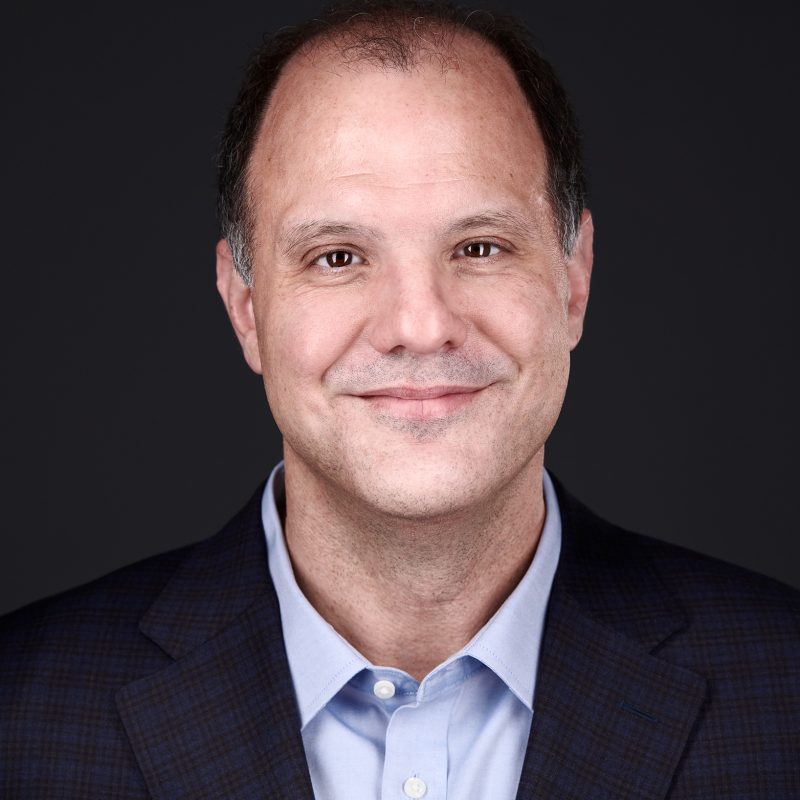Jeffrey D. Blume Named Quantitative Foundation Associate Dean for Academic and Faculty Affairs in Data Science

The University of Virginia School of Data Science announces the appointment of Jeffrey D. Blume as the Quantitative Foundation Associate Dean of Academic and Faculty Affairs, effective July 25.
Blume is currently a tenured Professor of Biostatistics, with secondary appointments in Biomedical Informatics and Biochemistry at Vanderbilt University. He serves as Director of Graduate Education at Vanderbilt’s Data Science Institute and Vice-Chair of Education in the Department of Biostatistics. He is a leading expert in likelihood methods for measuring statistical inference, prediction modeling, and statistical methods for clinical trials. He recently proposed the ‘second-generation’ p-value: an improved tool for statistical inference that is easier to use and interpret and that has better error rate control and lower false discovery rates.
Blume brings to the School of Data Science (SDS) a proven track record of academic leadership and influential research and impactful collaborations in radiology, cancer diagnosis and prediction, nephrology, translational biomedicine, fMRI, and women’s health. He was recently elected a fellow of the American Statistical Association, awarded the Spinoza Chair in Medicine by the University of Amsterdam in 2019, and won multiple awards for teaching, mentoring, and research.
“Jeffrey brings a wealth of expertise to the School as a data scientist, administrator, and biostatistician,” remarked Stephenson Dean Philip Bourne. “I can’t imagine a better person for the role of leading our academic programs and faculty to the heights I know they can achieve. He also has the collaborative team spirit that is so integral to the School’s culture and values of teaching and research excellence.”
At Vanderbilt, Blume established a Ph.D. program in Biostatistics and served as Director of Graduate Studies for over 10 years. In 2018, he proposed and established an M.S. in Data Science, which was offered in their Data Science Institute, and welcomed their first class the following year. Prior to Vanderbilt, Blume spent eight years at Brown University where he served as Deputy Director of the Biostatistics and Data Management Center for the NCI-funded American College of Radiology Imaging Network. While at Brown, he helped launch their Master of Public Health program and helped design clinical trials evaluating new medical imaging technology.
“I find developing new education programs stimulating, challenging, and rewarding,” commented Blume. “It is difficult to develop a curriculum that can withstand the tailwinds of a changing scientific discipline and workforce. As educators, I believe it is our responsibility to not only teach technical skills but to also teach students how to learn on their own so they can be self-sufficient. This is a critical skill for data scientists; the pace of innovation is already incredibly fast. What you know today may be obsolete tomorrow.”
Blume has mentored and supervised numerous Ph.D. and master’s candidates in biostatistics and data science. “I love to help students on their educational journey,” he stated. “I believe in building a welcoming and open community where diverse backgrounds, skill sets, and life experiences can be harnessed to help grow our next generation of data science pioneers.”
Blume’s methodological research is extensive. He is widely published on topics such as evidential philosophy of statistical inference, likelihood methods, second-generation p-values, prediction modeling, mediation modeling, ROC curves, sequential testing, trial design, empirical Bayes methods for biomedical data, false discovery rates, model selection, and neuroimaging. He has a broad and extensive track record of impactful collaborative work from designing national clinical trials on diagnostic imaging techniques to revising national lung cancer screening guidelines to reduce racial disparities.
Blume joins the School of Data Science at a pivotal time in the School’s development. Established in 2019 by the largest gift in the University of Virginia’s history, it was founded on a core set of common goals: to further discovery, share knowledge, and make a positive impact on society through collaborative, open, and responsible data science research and education. In addition to offering a range of degree and non-degree programs, the School’s research impacts broadly, from health sciences to technology, environmental science to education.
“The School is at the forefront of defining data science as a discipline, and that’s exciting,” said Blume. “I really like that the School is not only focused on research but has a broad educational mission for all people. Our responsibility is to teach people how to learn, especially in technical degrees like data science, and teach them why things work while giving them the ability to learn and develop new tools so they too contribute to the discipline.”
Committed to using data science for the common good, Blume was a senior author on a widely publicized paper that proposed revised lung cancer screening guidelines to reduce racial disparities, earning him Vanderbilt’s Chancellor Award for Research Equity, Diversity, and Inclusion.
Blume stated, “There is no data science without diversity. I see data science as being able to leverage that diversity to make important contributions that can help move science forward in a way that traditional disciplines like computer science and statistics may not be able to do.” He elaborated, “To that end, the School of Data Science must have a strong diversity presence if it’s going to be successful. We must create an environment that attracts and retains a diverse group of people—faculty, staff, researchers, and students—because it is a reflection of who we are.”
Blume holds a Ph.D. in Biostatistics from Johns Hopkins University and a B.A. in Statistics from the State University of New York at Buffalo.
The Quantitative Foundation Associate Dean for Academic and Faculty Affairs is funded in part by a $120 million gift from the Charlottesville-based Quantitative Foundation, as well as additional matching funds from UVA’s Bicentennial Professors Fund and Bicentennial Scholars Fund.